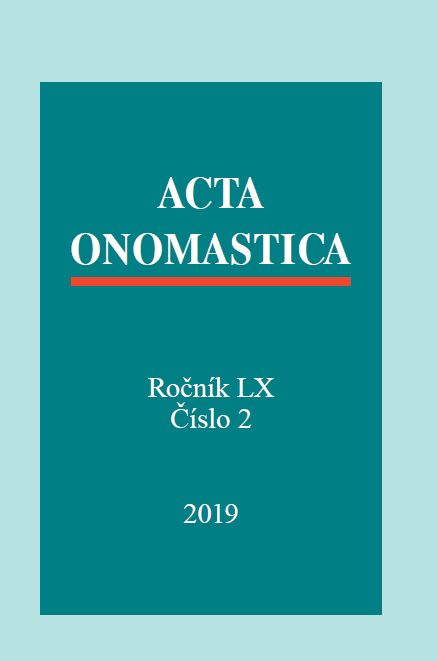Cпецифіка сільського іменника півдня волинської області другої половини хіх століття: вплив церковного календаря на називання дитини як визначальний мотив номінації
Specifics of peasants’ names in the south of Volyn region in the second half of the 19th century: the church calendar as a motivation in name-giving
Author(s): Larisa SadovaSubject(s): Descriptive linguistics
Published by: AV ČR - Akademie věd České republiky - Ústav pro jazyk český
Keywords: anthroponym; anthroponymy; appellative; name
Summary/Abstract: This paper provides an analysis of peasants’ names in the rural areas of Brany and Rzhyshiv as they were recorded in the church documents of the 19th century. In the 19th century Volyn, the church calendar played an important role in name-giving which followed the principle of choosing the name according to the date of birth. The basis of the names in this period is made up by names of Greek, Latin and Hebrew origin, and a small number of names of Slavic origin. These names reflect regional specifics caused by historical, religious, and cultural features of the region, and demonstrate the anthroponymic preferences of that period. The analysis focused on the composition of male and female names, the degree of influence of extra-language factors, the tendencies in name formation, and also the frequency of individual names, and it also provides a list of names used actively in the area of this particular period.
Journal: Acta Onomastica
- Issue Year: LX/2019
- Issue No: 2
- Page Range: 253-262
- Page Count: 10
- Language: Ukrainian

